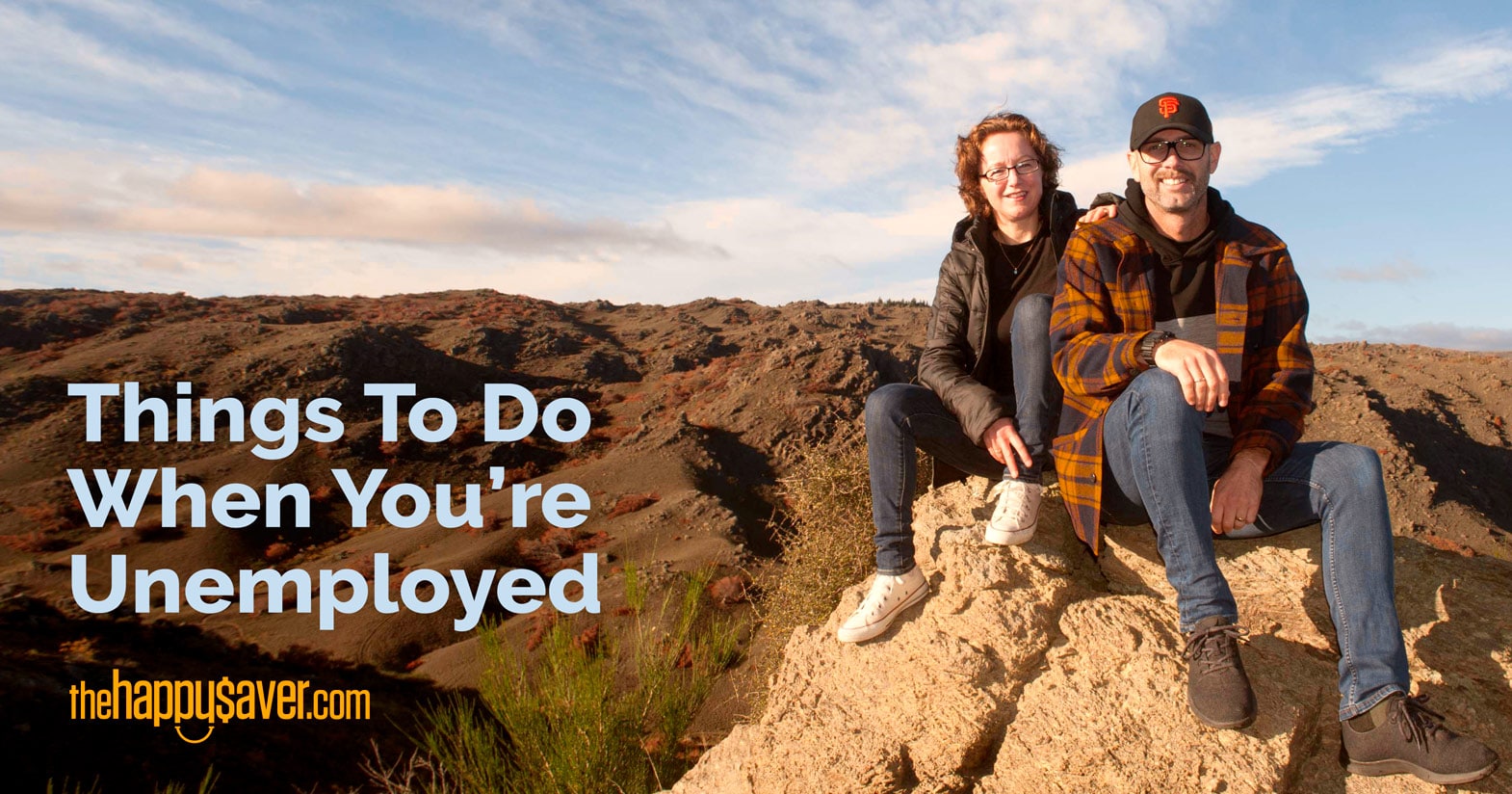
Welcome to unemployment! I’ve been unemployed against my choice, and I’ve been unemployed because I chose it.
The first time I found myself unemployed was on Day #1 of my very first job. And it wasn’t my fault! For reasons that my 47-year-old self can no longer remember, I had decided to become a dog groomer, and straight out of school I secured a job in a salon. I was very excited! However, on my first morning at my brand new job, war broke out between the salon owners and before morning tea, they were neither a couple nor business owners anymore. They shut the door for good!
I was 18, unemployed, and shell-shocked. What a welcome to the workforce, huh?
I waited out the summer while collecting the unemployment benefit. In the new year, I started a tertiary course to become a qualified truck driver and forklift operator of all things. I know, right? What on earth? So much for becoming a dog groomer to the stars!
But out of adversity comes vast opportunity.
I absolutely LOVED my course. Had I never got the boot, I would never have known that something awesome was waiting for me. I’d fallen into (and out of) my first job, but I put some serious thought into what I wanted to do the second time around, and I actively chose my next job.
Unemployment is a brief spell most people go through where you are forced to stop and reflect, and it is a period most of us experience at some point in time. Use the time to take a break, get some rest and then gear up for the job hunt. Take the career break as an opportunity to dream and then redirect your energy and work towards achieving it.
Unemployment is just a phase to move through on your way to a job you love.

Want to know the lowest point in my job hunt? Trialing for a job driving an ice cream truck. Driving around suburban streets at dusk trying to lure children out of their homes. I was only 18, and this felt just darn WEIRD. I got offered the job, but I couldn’t bring myself to say yes.
In hindsight, my ego got in the way. It felt like a massive come down, and I was embarrassed about what my old schoolmates would think if they saw me. I should have taken the job because I needed the money. I could have avoided accepting the unemployment benefit, and I could have got some work experience and had something to put on my next job application.
What I did take from it, though, was that I was employable; I just had to keep trying.
Structure is important during this time. The hardest thing I found during the times I was looking for work was staying optimistic and motivated. Creating a daily schedule where you set aside time to job hunt, eat well, exercise, sleep well, and socialize will get some balance in your day.
While taking in a bit of Netflix is okay, unemployment is time to binge on your education instead, as well as get match-fit for job interviews. Get out of the house, volunteer somewhere and speak to new people daily because it gives you life experience and makes you more employable than the applicant who just fills out online applications, clicks ‘submit’ and considers their day done.
It is daunting to find work, and you need to motivate yourself because no one can do it for you. I think it’s good to end each day having achieved something that is getting you one step closer to your next employment.
Create an application that stands out. Tailor your application to each job because a generic resume shows a lack of effort. Make the recruiter’s job easy and make yourself the obvious choice.
It’s fantastic to role-play an interview with someone. There is nothing worse than drawing a blank when you get the inevitable “tell me your strengths and weaknesses” question. You need to have the answers on autopilot to get across to the interviewer how right for the role you are in the short space of time you have.
Research the position you are applying for to ask some questions of your own to clarify if this is the role for you. Because that is the thing with looking for work, how do YOU feel about your interviewing company?
My parents stepped up to help me find a new beginning after my sudden job loss, and since then, I’ve sought out the right people to help me find work. It’s my secret weapon, connecting with others.
When I passed my trucking course with flying colors, my instructor took me aside and offered to act as a referee for me. Their name carried weight, and I got a full-time job shortly after I graduated. Never forget that the connections you make are crucial and that if people see merit in you, they want to help you succeed.
In my early 30’s I took a six-month voluntary career break and then decided it was time to return to work. I had a broad range of education and skills behind me by this time, but I didn’t quite know where to focus them. So I (very nervously) phoned up a very successful business person I knew in passing that had a generous nature and asked if I could meet them for a coffee. I was not asking for a job; I was asking for career guidance. Over a coffee, they opened my eyes to opportunities I didn’t know existed. So much good came from that chat. A day or two later, I received a phone call from what would become my next employer. Since our conversation, my details had been handed about without me knowing, and because of the person handing them out, I was already 90% through the interview process.
In turn, I have become good at also connecting those seeking work with those looking to employ, and it’s gratifying to do so.

“Ruth, can I have a job?” you ask.
I say, “NO!”
There you go; you just got rejected.
Accept it graciously, learn from it, get back out there, keep applying for work and keep making connections. Become known as that person that other people want to help get a job, and your credentials will soon end up on the right manager’s desk.
I remember it being hard to keep my chin up and stay positive when looking for work. But it was a case of plastering a smile on my face each time I approached a prospective employer. After all, they don’t want to hire you if you are low on energy and lacking enthusiasm. So, even if you are not feeling it, you’ve got to fake it until you make it. Give yourself a talking to and appear happy and confident — even if you are not. Because when you DO land the position of your dreams, you will feel happy and confident for real.
The best feeling in the world is when you secure a position. It’s THE best feeling. You did it, you made it!
Of course, perfect unemployment is one where the financial pressure is at a minimum.
Hopefully, you have been budgeting well up until this point with a good management app or system, and have an emergency fund set aside. With a financial buffer behind me, I’ve up and quit many a good position because I felt like a change, and I’ve managed to turn the job hunt into a positive time for me. Without the pressure of money, I get to seek out the next exciting phase of my working life.
Still, in many instances losing your job is a financial emergency, and you need to treat it as such.
All unnecessary spending stops the day you first learn your job is ending. It’s time to store your nuts for winter and use them sparingly because when you don’t know where your next paycheck is coming from, you can’t afford to waste a single dollar. Unemployment is stressful enough without adding financial pressure as well.
The purpose of having an emergency fund of 3 to 6 months of expenses is to buy you some time to find a job. You can look for your dream job — instead of just any job — when you have removed the financial pressure because of this cash buffer.
Whatever job you are in right now, stay connected with your learning and make connections with others. Be the employee that your colleagues enjoy working with and that your manager knows they can rely on.
If you do find yourself unemployed, remember that great people don’t stay unemployed for long, and this could be your chance to step up in both career and income.
That’s exciting!
Ruth blogs at thehappysaver.com all about how she and her family handle money. What’s the secret? Spend less than you earn, invest the difference, avoid debt and budget each dollar that flows through your hands. She firmly believes that if you can just get the basics right, life becomes easier from there on in.